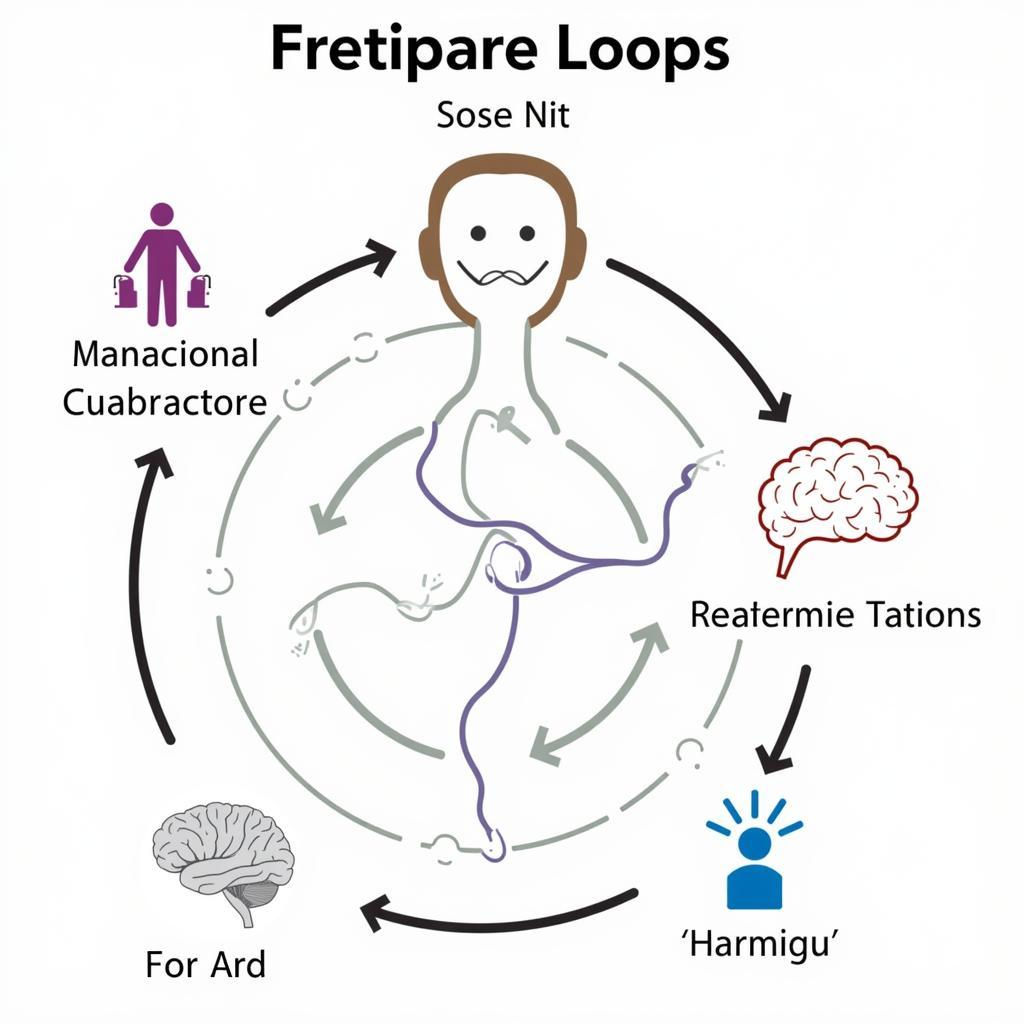The Society for Behavioral Neuroendocrinology (SBN) plays a crucial role in bridging the fields of behavior, neurobiology, and endocrinology. This interdisciplinary approach aims to understand how hormones influence brain function and behavior, ultimately shaping the way we interact with the world around us.
Delving into the World of Hormones and Behavior
At its core, behavioral neuroendocrinology seeks to unravel the complex interplay between hormones, the brain, and behavior. Hormones, acting as chemical messengers, travel throughout the body, influencing a wide array of physiological processes, including mood, stress response, and social interactions. By studying these intricate connections, researchers can gain valuable insights into the biological underpinnings of human behavior.
 Visual representation of the interconnectedness of hormones, brain, and behavior.
Visual representation of the interconnectedness of hormones, brain, and behavior.
The Importance of an Interdisciplinary Approach
One of the hallmarks of SBN is its commitment to fostering collaboration between scientists from diverse backgrounds. By bringing together experts in neurobiology, endocrinology, psychology, and related fields, SBN creates a fertile ground for groundbreaking discoveries. This interdisciplinary approach allows researchers to tackle complex questions from multiple angles, leading to a more comprehensive understanding of the intricate relationships between hormones and behavior.
For instance, researchers might investigate how the hormone oxytocin, often referred to as the “love hormone,” influences social bonding and trust. By combining behavioral observations with neuroimaging techniques and hormone level analysis, scientists can gain a holistic view of the biological mechanisms underlying these complex social behaviors.
Key Areas of Focus within Behavioral Neuroendocrinology
The field of behavioral neuroendocrinology encompasses a wide range of research areas, reflecting the diverse ways in which hormones influence our lives. Some of the key areas of focus include:
- Stress and Resilience: Understanding how hormones like cortisol mediate our responses to stress and how these responses vary across individuals.
- Social Behavior: Investigating the hormonal influences on social interactions, including pair bonding, parental care, and aggression.
- Cognitive Function: Exploring the role of hormones in learning, memory, and decision-making processes.
- Mental Health: Examining how hormonal imbalances contribute to psychiatric disorders such as depression and anxiety.
 Various fields benefiting from behavioral neuroendocrinology research.
Various fields benefiting from behavioral neuroendocrinology research.
The Future of Behavioral Neuroendocrinology: Advancing Our Understanding of Human Nature
As our understanding of the brain and hormones continues to evolve, so too will the field of behavioral neuroendocrinology. Technological advancements in areas like neuroimaging and genetic sequencing are providing researchers with unprecedented tools to probe the intricate workings of the brain and its hormonal influences.
With its interdisciplinary approach and commitment to scientific rigor, the Society for Behavioral Neuroendocrinology stands at the forefront of unraveling the complex interplay between our biology and our behavior. By shedding light on these fundamental connections, SBN paves the way for developing novel interventions to address a wide range of human health and societal challenges.
Conclusion
The Society for Behavioral Neuroendocrinology plays a vital role in advancing our understanding of the intricate relationship between hormones, the brain, and behavior. Through its interdisciplinary approach and commitment to research, SBN contributes to a more nuanced and comprehensive view of human nature, paving the way for a future where we can better address health and societal challenges rooted in the complex interplay of biology and behavior.